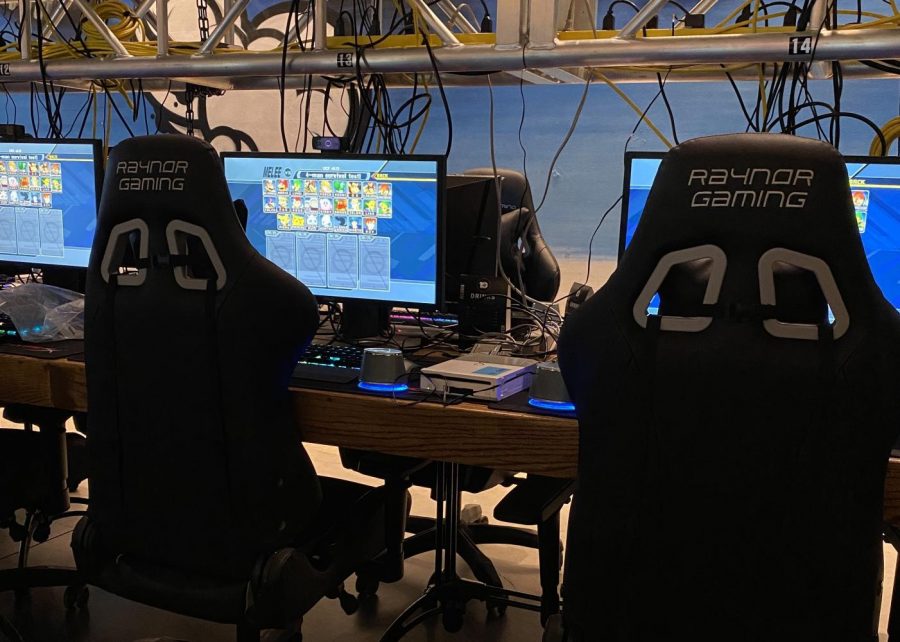A lot has changed in video games since their humble beginnings in the 1970s. The matter of choosing what to play is no longer as simple as deciding between an action-packed game of “Pong” or an equally action-packed game of “Space Invaders.” The games, the market, the industry: every facet has been expanding rapidly. Sprawling franchises like “Super Mario” and “Sonic the Hedgehog” have become household names, with more and more franchises beginning to join them. The industry is undoubtedly still young, but its expansion has been rapid in its journey to the $120 billion powerhouse it is today.
Despite this change, there’s been a continuous and traceable thread: community. From the well-represented arcades of the 70s to the underground grassroots tournament scene of “Super Smash Bros Melee” in the 2000s and now the Super Bowl-surpassing viewership of the “League of Legends” World Championship, video games have been forming communities ever since their inception and continue to do so.
Isiah Rosa, a Game Design senior and vice president of NYU’s Poly Gaming Network Club, a Tandon-based club where members play a variety of games, beginners and veterans alike, mentioned his own experiences with game communities.
“Some of my closest friends, I found through games,” Rosa said. “I love hosting tournaments and seeing people come out and meet one another, and then chatting even after those tournaments.”
The events that Rosa runs are a strong reminder of the physical spaces these games used to be bound to, a tradition that is still relevant despite the abundance and ease of online communities. These experiences can truly be life-changing for some people, and while this can be true for any sort of hobby or fandom community, the massive amount of multiplayer games is especially conducive to forming close-knit and passionate environments.
With that being said, there is no denying the existence of toxic groups that have started under the pretense of games. “Gamergate,” the problematic outcry from members of the gaming community protesting against women in the industry, is a much more concerning stain on the community as a whole. Criticism of the industry would be much more productive if it were focused on rectifying the presence of hate groups within the community instead of being funneled into the phantom threat of violent games.
Helping to counteract this is the fact that video games are, often unconsciously, educating their players. Even early text adventure games such as the aptly named “Adventure” or the less-literally named “Zork” undoubtedly could be useful for teaching vocabulary, reading and critical thinking. Newer games and the increasing possibilities inherent in their development are leading to experiences that can teach in the more nuanced way that other art can.
Further expanding the capacity for video games to teach is the recent genre of empathy-focused games. “Depression Quest,” “That Dragon, Cancer,” “Dys4ia,” “Freshman Year” — games about depression, grief, gender dysphoria, sexual assault and countless other sensitive and often deeply personal subjects are now being made. While these games obviously don’t have the audience of the more marketable “Fortnite” or “Call of Duty” and often have negative user reviews (“Freshman Year” on Steam, for example), they’re pushing the limits of what a game can and arguably should do. The negative reviews in particular shed light on the quickly-aging perception of video games’ purpose from not only pessimistic critics but consumers alike.
Game Design first-year Leo Current proposed a reason for this dichotomy.
“Art is something that has current events, but many players don’t seem to be ready for that in their games, despite the fact that they want them to be considered art,” Current said. “If they can accept games as art, then the rest of the world can follow along with them.”
It seems like common sense. These are games; they’re meant to be fun. But perhaps common sense should be thrown out the window here. These games are using interactivity as more than a tool for entertainment and are beginning to explore the possibilities that the medium can facilitate.
“I encourage you to explore the weirder side of games,” Rosa said. “In doing that, you may be able to broaden your understanding of what a game can be.”
Video games in practice have moved past the simplistic origins which still seem to strangle their reception and identity. Nowadays, there is a market saturated both with games calling back on nostalgia and games which are trying to fundamentally revolutionize the genre. For every triple-A cash grab, there seems to be a game pushing the envelope of technology and gameplay.
“That’s where fan games come in,” Current said. “It’s not necessarily they want to profit off it — they’re showing their love and dedication for something and want to make it because of that.”
There are countless individuals like the “Sonic Mania” developers: passionate fans creating games they find important, and these are the games that are going to carry the industry into the future. While the games once created the community, the community itself is now a key player in the creation of games. When the power is in the hands of the player, games become a powerful medium for their community to form conversations about important social and personal issues.
A version of this article appears in the Tuesday, Feb. 18, 2020, print edition. Email Nicholas Weid at [email protected].


























































































































































